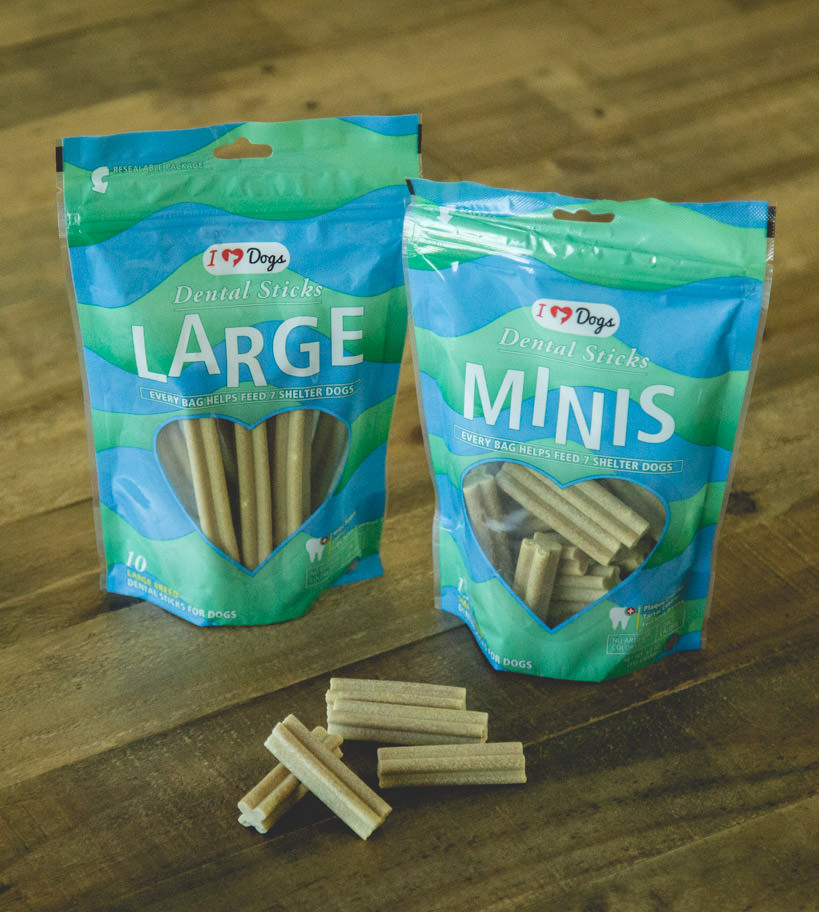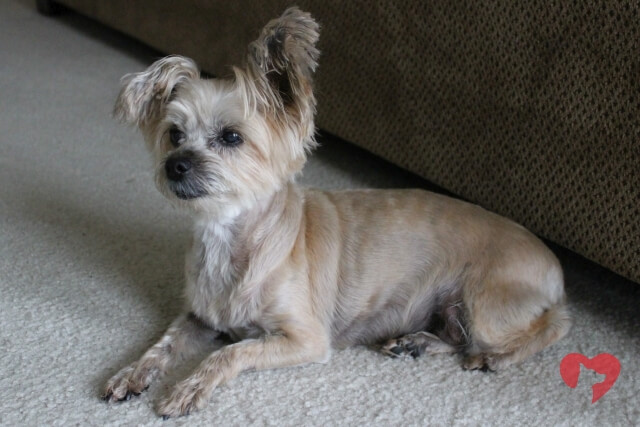Age creeps up on all of us, even our dogs. The signs can be subtle and easily missed while we go about our daily lives. However, being aware of and paying attention to the signs of aging in your dog could help you catch health issues early, which may make treatment easier and less expensive–not to mention save your dog discomfort. Brent Lotz, a vet assistant at Berry Hill Vet Clinic in Oregon City, Oregon, gave us 11 things to watch out for as your dog gets older. If you notice any of these, it’s time for a vet visit.
#1 – Slowing Down
Do you have to encourage your dog to run up the hill when he used to beat you to the top? Slowing down can be a sign of early arthritis, thyroid issues, etc.
#2 – Gaining Weight
As your dog gets older, you might notice her getting pudgy. This can be a sign of many things such as a slowing metabolism, thyroid issues, etc. It could be as simple as feeding your dog less food or switching to a lower calorie diet, but definitely check with your vet first to rule out any real medical issues.
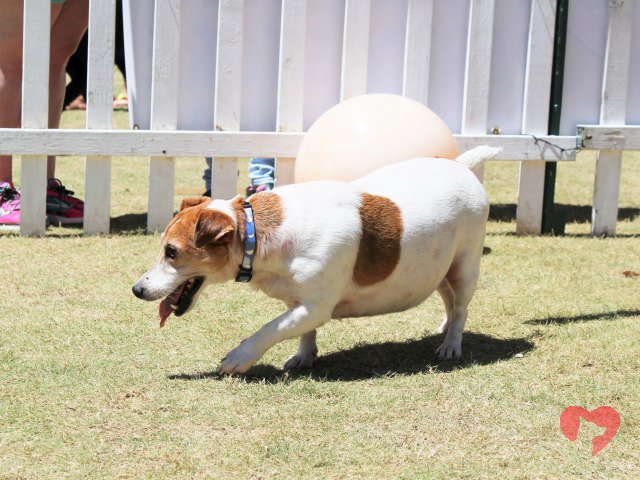
#3 –Not Responding To You
Has your dog stopped coming when you call? If you think your aging dog is just becoming “old and stubborn,” think again – he may be losing his hearing. Time to brush up on those hand signals!
#4 – Trouble Getting Up
You may notice your dog has trouble getting up after lying or sitting for a long time, particularly on hard surfaces. She may also have issues staying on her feet. This can be another sign of joint pain and should definitely be checked out by a vet. It may also be time to begin your dog on a joint supplement, such as glucosamine.
RELATED: At what age should I begin my dog on a joint care supplement?

#5 – Cloudy Eyes
This can be hard to see at first, especially if you have a dog that really avoids eye contact. However, it’s important to notice because while most dogs develop some cloudiness as they age (nuclear sclerosis), it can also be a sign of cataracts, which will need treatment. Definitely go to the vet if you notice any cloudiness.
RELATED: Why Bone Broth Is The Ultimate Superfood for Senior Dogs
#6 – More Bathroom Breaks
As your dog ages, he will also need to go to the bathroom more often. If he starts having accidents in the house, you may need to increase your number of potty breaks throughout the day or leave pee pads out when you leave.
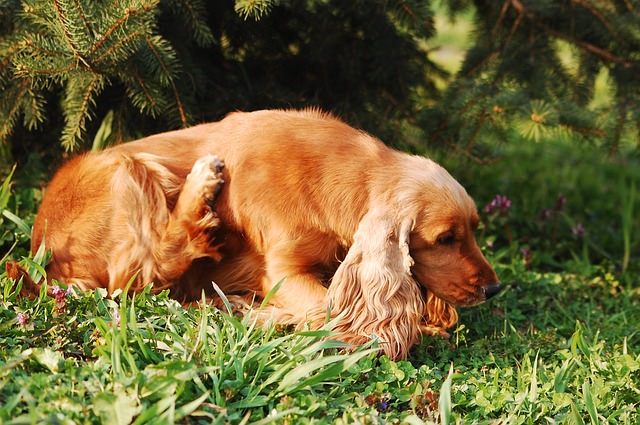
#7 – Continued Bathroom Accidents
On the same note, if your dog seems to be going a lot at random, even after you have increased your bathroom breaks, she may be having trouble “holding it.” Take her to the vet to make sure nothing is medically wrong.
#8 – Lumps
A dog owner’s worst fear – lumps. You should be feeling your dog for lumps frequently. On short-haired dogs they will eventually be noticeable by sight, but it’s better if you detect them early – especially if they end up being cancerous. On long-haired dogs, regular checks are vital, since they may not be visible even when they get larger.
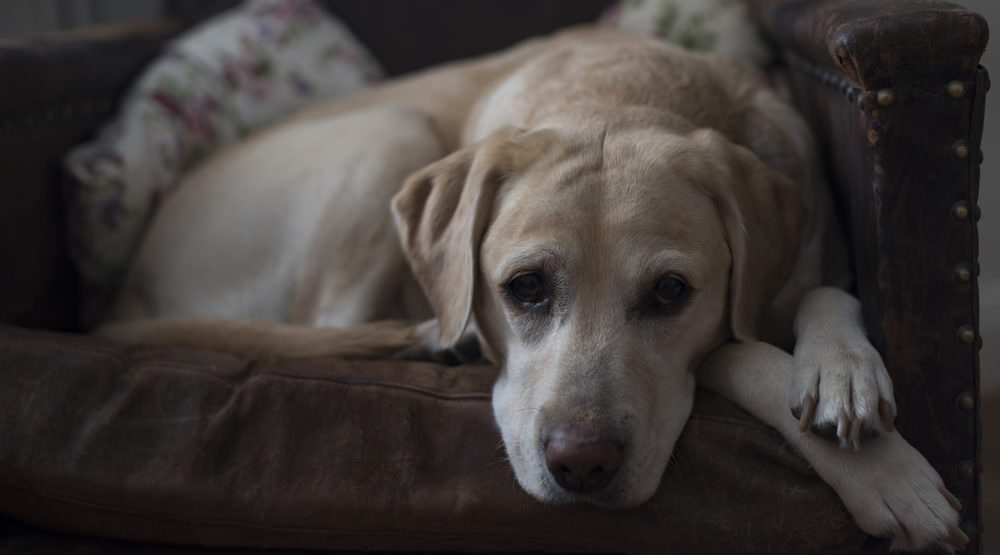
#9 – Deteriorating Coat Condition
Dry coat, itching, flakiness, hot spots, hair loss, etc. – these are all indications that something is going on with your aging dog. They can be indications of a lot of different medical issues. If you notice your dog’s hair isn’t as nice as it once was, it’s time to go to the vet.
#10 – Slow To Do Something
Did you ask your (normally obedient) dog to sit and he looks at you for several seconds? Maybe he refuses the first time and then the second time you ask he does it – but only after carefully positioning his body and moving very slowly. These are signs that his body is getting older, and doing things like sitting, lying down, jumping, etc., are getting difficult. Same goes for repetitiveness. Maybe he sits the first two times but refuses the third.
#11 – Bad Breath
This sign of aging will probably be the first you encounter. Most dogs don’t have minty-fresh breath, but if it starts to smell funkier than usual, don’t ignore it. Dogs as young as three develop this and it’s usually a sign of dental disease. If your dog starts having bad breath, it’s definitely a “don’t wait” vet visit. The longer the teeth are allowed to decay, the worse it will be for your dog and your pocketbook.
The good news is, starting an oral care regimen with your pup can help prevent dental disease. Brush your dog’s teeth often and help keep them clean by treating them to dental sticks, like these.The good news is, starting an oral care regimen with your pup can help prevent dental disease. Brush your dog’s teeth often and help keep them clean by treating them to dental sticks, like these.The good news is, starting an oral care regimen with your pup can help prevent dental disease. Brush your dog’s teeth often and help keep them clean by treating them to dental sticks, like these.The good news is, starting an oral care regimen with your pup can help prevent dental disease. Brush your dog’s teeth often and help keep them clean by treating them to dental sticks, like these.
The good news about this is that you can help prevent your pet from suffering by implementing an oral care regimen. Brush her teeth regularly, and in between brushes, dental chews like these will help keep them clean. 